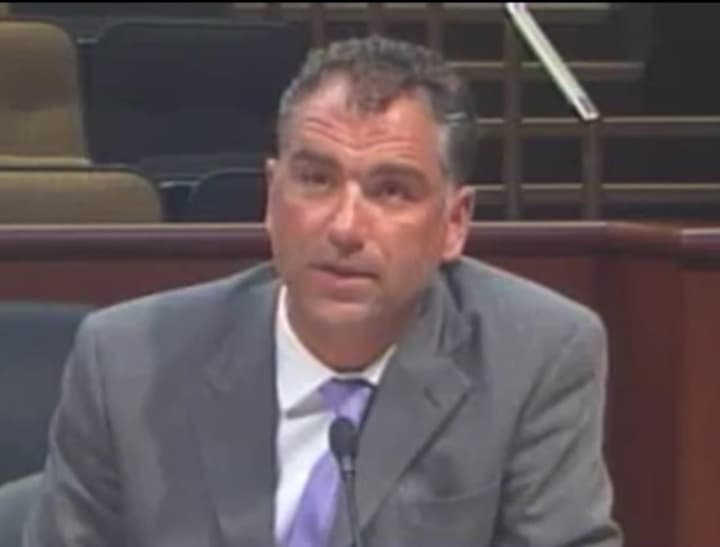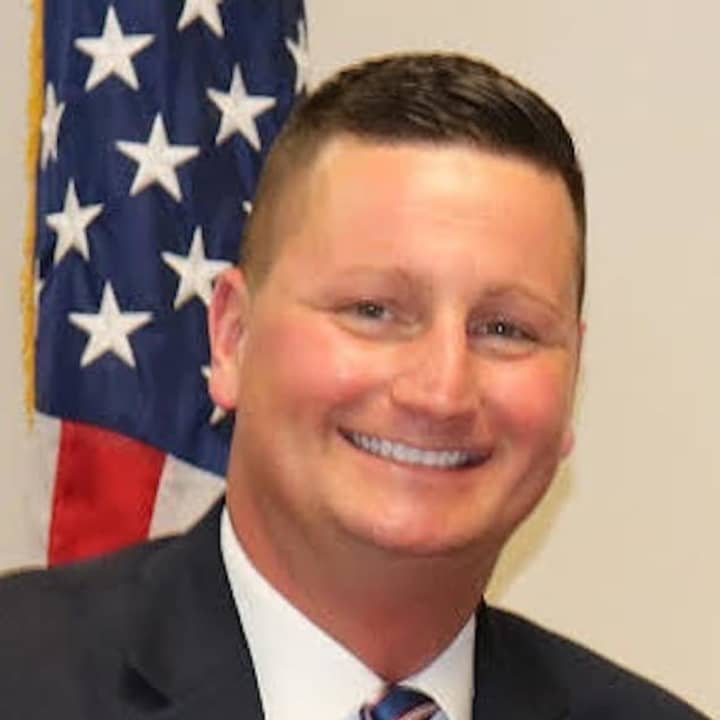School superintendents said the latest mass shooting in south Florida provokes fear and outrage from hundreds of miles away, but is still a very real and troubling fear locally.
In statements to students, parents and the community, area school officials are advising that safety is their highest priority.
Wednesday's mass shooting in Parkland, Florida, left 17 students and staff dead and at least 15 injured.
Sarah Derman, a spokeswoman for the Rye City School District, said, "We are making our students and parents aware that there are counselors and psychologists available to talk to them about the tragic incident in Florida. We have provided some tips for talking about violence to parents. We are also staying alert to any signs of anxiety that might suggest that a child or teenager might need more assistance." (Derman provided a letter from RCSD Superintendent Eric Byrne at the end of this article.)
Harrison Central School District Superintendent Luis N. Wool issued a statement to the community that read, "We, alongside a grieving nation, send our condolences to the entire Parkland, Florida community. Please know that our District is taking every measure to ensure that support and counseling services are available to students and staff during this period of grieving."
"As always, the Harrison Police Department is partnering with us to provide a reassuring presence in our school district," Wool said.
White Plains Schools Superintendent Joseph L. RIcca sent this letter to the community:
"We would like to take this opportunity to report on a matter of great importance to all school districts today: safety and security. The White Plains City School District places the safety and security of all of our students and staff as a top priority. Accordingly, our attention to addressing safety, security and emergency preparedness is through proactive, ongoing, conscientious planning and practice, rather than by responding to specific incidents," Ricca said.
"In an on-going effort to adhere to our proactive approach, the District contracted with a school safety, security and emergency management consulting firm, Altaris Consulting Group, in May of 2017. In response to the company's initial audit and survey of our preparedness, the District has strengthened its practices and put in place a number of additional security measures, including new systems for building access, a modernized approach to school visitors, additional security focused technology, and continued partnership with local law enforcement agencies, including our School Resource Officers," RIcca said.
"We are pleased to report that the District has made tremendous progress over the past several months in enhancing our safety, security and emergency preparedness. Of course, these essential functions are continuous and will remain a top priority of our Board of Education and administrative team. Maintaining tested plans and procedures, as well as ensuring that staff is well trained, are essential to achieve our primary goal of maintaining a safe learning environment for all of our students and educational community members," Ricca said.
Ricca's full letter is attached below.
Hendrick Hudson Superintendent of Schools Joseph Hochreiter also described safety measures currently in place in district schools:
“I want to assure you that the safety of our students is our top priority; our district works continuously to provide a safe and secure school environment for your children,” Hochreiter said. “This includes our ongoing efforts to refine safety and security procedures, protocols, and infrastructure; working closely with first responders from our various communities; and collaborating with safety/security experts to evaluate and improve our safety plans.”
Hochreiter said each of the district’s five schools maintains a School Emergency Response Team (SERT) which regularly reviews and practices crisis response procedures.
“We all need to work together to address and prevent threats,” Hochreiter stressed. “While the slogan, ‘If you see something, say something’ may be overused, it nevertheless bears repeating, as it represents an essential element in any school safety plan," Hochreiter said. “We would like to remind parents and staff how important it is to maintain open communication with our children—about what they are seeing on television, about how they deal with anger and frustration, and about their relationships with other students,” he continued.
Hochreiter said the National Association of School Psychologists suggests to parents helping children cope with such tragic news by making time to talk, limiting television viewing and maintaining normal routines.
Rye City School Superintendent Eric Byrne sent thee following letter and suggestions to parents:In the wake of yesterday's unimaginable tragedy in Florida, I wanted to remind parents and guardians of the many resources available to them in the Rye City School District. Attached, please find a list of counselors, psychologists and administrators at the schools and their contact information. These professionals are available to any parent or student in the school district who is in need of support.
In addition, below please find some helpful suggestions from the National Association of School Psychologists to guide parents through difficult discussions about school violence.
I know you join me and all of the members of the Rye City School District community in sending the families of Parkland our heartfelt sympathy and hopes for strength, healing and resilience.
Talking to Children About Violence: Tips for Parents and Teachers
1. Reassure children that they are safe. Emphasize that schools are very safe. Validate their feelings. Explain that all feelings are okay when a tragedy occurs. Let children talk about their feelings, help put them into perspective, and assist them in expressing these feelings appropriately.
2. Make time to talk. Let their questions be your guide as to how much information to provide. Be patient; children and youth do not always talk about their feelings readily. Watch for clues that they may want to talk, such as hovering around while you do the dishes or yard work. Some children prefer writing, playing music, or doing an art project as an outlet. Young children may need concrete activities (such as drawing, looking at picture books, or imaginative play) to help them identify and express their feelings.
3. Keep your explanations developmentally appropriate.
· Early elementary school children need brief, simple information that should be balanced with reassurances that their school and homes are safe and that adults are there to protect them. Give simple examples of school safety like reminding children about exterior doors being locked, child monitoring efforts on the playground, and emergency drills practiced during the school day.
· Upper elementary and early middle school children will be more vocal in asking questions about whether they truly are safe and what is being done at their school. They may need assistance separating reality from fantasy. Discuss efforts of school and community leaders to provide safe schools.
· Upper middle school and high school students will have strong and varying opinions about the causes of violence in schools and society. They will share concrete suggestions about how to make school safer and how to prevent tragedies in society. Emphasize the role that students have in maintaining safe schools by following school safety guidelines (e.g., not providing building access to strangers, reporting strangers on campus, reporting threats to the school safety made by students or community members, etc.), communicating any personal safety concerns to school administrators, and accessing support for emotional needs.
4. Review safety procedures. This should include procedures and safeguards at school and at home. Help children identify at least one adult at school and in the community to whom they go if they feel threatened or at risk.
5. Observe children’s emotional state. Some children may not express their concerns verbally. Changes in behavior, appetite, and sleep patterns can also indicate a child’s level of anxiety or discomfort. In most children, these symptoms will ease with reassurance and time. However, some children may be at risk for more intense reactions. Children who have had a past traumatic experience or personal loss, suffer from depression or other mental illness, or with special needs may be at greater risk for severe reactions than others. Seek the help of mental health professional if you are at all concerned.
6. Limit television viewing of these events. Limit television viewing and be aware if the television is on in common areas. Developmentally inappropriate information can cause anxiety or confusion, particularly in young children. Adults also need to be mindful of the content of conversations that they have with each other in front of children, even teenagers, and limit their exposure to vengeful, hateful, and angry comments that might be misunderstood.
7. Maintain a normal routine. Keeping to a regular schedule can be reassuring and promote physical health. Ensure that children get plenty of sleep, regular meals, and exercise. Encourage them to keep up with their schoolwork and extracurricular activities but don’t push them if they seem overwhelmed.
More details on RCSD procedures are attached below:
See AttachmentClick here to follow Daily Voice New Rochelle and receive free news updates.



